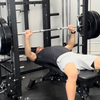Demystifying the Science Behind Your Body's Muscle Recovery Process

Muscle recovery refers to the process by which muscle tissue undergoes repair and regeneration subsequent to physical exercise or injury. It constitutes a crucial element of comprehensive fitness and wellness, as effective recovery is instrumental in preserving muscular strength and functionality over extended periods. Scientific investigations have substantiated the notion that insufficient recovery can result in diminished muscle performance and heightened susceptibility to injuries.
The Science of Muscle Recovery
Muscle recovery encompasses a multifaceted progression characterized by various intricate physiological mechanisms, such as protein synthesis, inflammation response, muscle glycogen replenishment, and quality sleep. Acquiring a comprehensive comprehension of the scientific aspects underlying muscle recovery empowers individuals to strategically optimize their recovery strategies and thereby maximize their muscular gains..
The Role of Protein Synthesis in Muscle Recovery
Protein synthesis is a crucial process in muscle recovery, as it is responsible for repairing and rebuilding damaged muscle tissue. During exercise, muscle protein breakdown occurs, releasing amino acids that are used to synthesize new muscle protein during recovery. Therefore, consuming protein-rich foods after exercise can enhance muscle recovery by providing the amino acids for protein synthesis.
Inflammation and Muscle Recovery
Inflammation is a natural response to tissue damage and is essential to muscle recovery. During exercise, muscles experience microtrauma, which triggers an inflammatory response. This response stimulates the recruitment of immune cells and growth factors, which help to repair damaged muscle tissue.
However, excessive inflammation can impede muscle recovery and lead to delayed onset muscle soreness (DOMS). Therefore, managing inflammation through rest, nutrition, and active recovery strategies can optimize muscle recovery.
Muscle Glycogen and Recovery
Muscle glycogen is the primary energy source for muscles during exercise, and its depletion can impair muscle performance and delay recovery. Consuming carbohydrates after exercise can help replenish muscle glycogen stores and enhance muscle recovery. However, the optimal timing and amount of carbohydrate consumption may vary based on the type and intensity of exercise.
The Importance of Sleep in Muscle Recovery
Sleep is a critical aspect of muscle recovery; during sleep, the body releases growth hormones and engages in protein synthesis. Insufficient sleep can impair muscle recovery and decrease muscle performance. Therefore, ensuring adequate sleep hygiene, such as maintaining a regular sleep schedule and creating a conducive sleep environment, can optimize muscle recovery.
Strategies for Optimizing Muscle Recovery

Optimizing muscle recovery is essential for athletes and fitness enthusiasts to maximize their performance and achieve their goals. It involves a combination of various strategies that promote muscle repair and growth. This section will discuss some of the effective strategies for optimizing muscle recovery.
Proper Nutrition and Hydration
Nutrition plays a crucial role in muscle recovery. Adequate intake of protein and carbohydrates is necessary to promote muscle repair and glycogen replenishment. The protein synthesis is stimulated by dietary protein consumption, and the timing of protein intake is critical in promoting muscle recovery. Proper hydration is also crucial for muscle recovery as it helps maintain muscle function and prevents muscle fatigue.
Active Recovery Techniques
Active recovery techniques such as foam rolling, massage, and low-intensity exercises effectively promote muscle recovery. These techniques help reduce muscle soreness, improve blood circulation, and facilitate the removal of waste products from muscles.
Rest and Sleep
Rest and sleep are essential for muscle recovery. During rest, the body repairs and rebuilds muscle fibers damaged during exercise. Lack of adequate rest can lead to muscle fatigue and impaired muscle recovery. Sleep is also crucial for muscle recovery as it promotes the release of growth hormones essential for muscle repair and growth.
Cold Therapy and Stretching
Cold therapy and stretching are effective in promoting muscle recovery. Cold therapy helps reduce inflammation and muscle soreness while stretching improves flexibility and reduces muscle tension. Research has shown that combining cruel treatment and stretching is more effective in promoting muscle recovery than alone.
Optimizing muscle recovery is crucial for athletes and fitness enthusiasts to achieve their goals and maximize their performance. The strategies discussed in this section, including proper nutrition and hydration, active recovery techniques, rest and sleep, and cold therapy and stretching, can help promote muscle recovery and reduce muscle soreness. Incorporating these strategies into your training regimen can help you achieve your fitness goals while minimizing the risk of injury.
Common Mistakes in Muscle Recovery

While optimizing muscle recovery is crucial, inevitable mistakes can hinder the process and even lead to injury. In this section, we will discuss common mistakes people make in muscle recovery and how to avoid them.
Overtraining
Overtraining is a common mistake leading to muscle fatigue and impaired recovery. The overtraining syndrome is a condition that results from excessive exercise without adequate recovery. Symptoms of overtraining include muscle soreness, fatigue, and decreased performance. To avoid overtraining, it's essential to incorporate fair rest days into your training regimen and listen to your body's signals.
Neglecting Proper Nutrition
Proper nutrition is essential for muscle recovery, as we discussed earlier. Neglecting good nutrition can hinder muscle recovery and even lead to muscle loss. Inadequate intake of protein and carbohydrates can lead to decreased muscle repair and glycogen replenishment. Consuming a balanced diet that includes adequate amounts of protein and carbohydrates is essential to promote muscle recovery.
Ignoring Pain and Injuries
Ignoring pain and injuries is a common mistake that can lead to further damage and delay muscle recovery. Pain signals the body that something is wrong, and ignoring it can lead to severe injuries. Ignoring pain and injuries can lead to chronic injuries that require extensive rehabilitation. It's essential to seek medical attention and rest adequately to promote muscle recovery and prevent further damage.
Optimizing muscle recovery requires a combination of various strategies, but it's equally important to avoid common mistakes that can hinder the process. Overtraining, neglecting proper nutrition, and ignoring pain and injuries are common mistakes people make in muscle recovery. You can avoid these mistakes by incorporating adequate rest, good nutrition, seeking medical attention for damages, and promoting effective muscle recovery.
-
Posted in
Muscle Recovery, RitKeep Fitness




